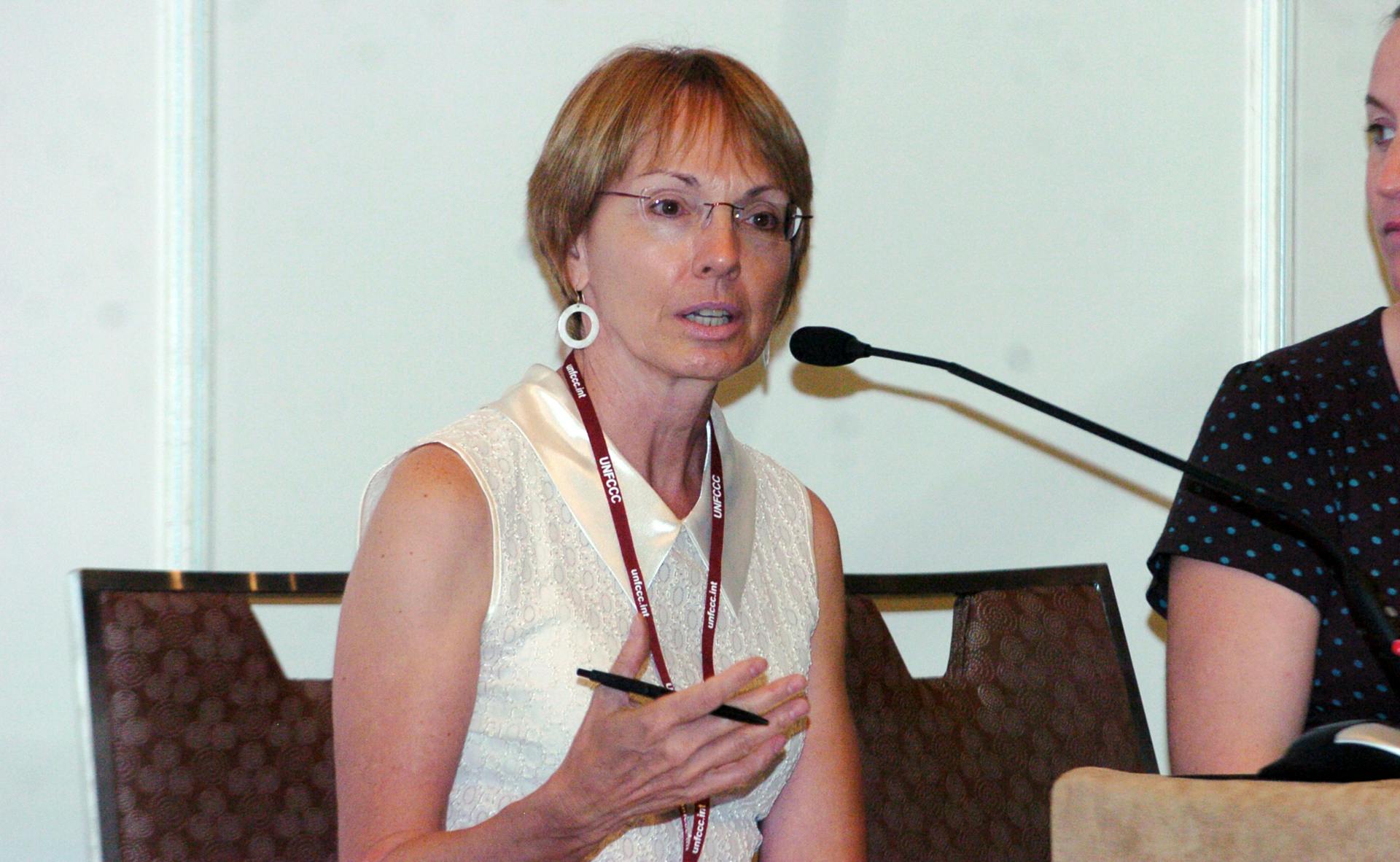Kristie L. Ebi is director of the Center for Health and the Global Environment (CHanGE) at the University of Washington and has spent more than 20 years researching the impact of climate change on health. She has worked with dozens of countries and organizations to design adaptation policies and solutions to limit the risks of climate change, including how to best deal with the issues caused by extreme events, lack of food security, and vector-borne diseases. Ebi gave a TED talk this year on climate change's negative effects on the nutritional value of the world's crops, and she spoke with Overture about those issues and more.
What do you see as the most pressing risks climate change poses to human health?
There's a very broad range of risks—basically any health outcome that can be affected by weather or climate, a whole range of extreme weather and climate events, such as storm surges, sea level rises, and flooding.
Undernutrition is the major risk worldwide in terms of a changing climate, and that's both from changing weather patterns and reducing crop yields. It's also damaging from rising concentrations of carbon dioxide in the atmosphere, affecting the nutritional quality of our food.
Infectious diseases where the pathogen and/or the transmission cycle is sensitive to weather parameters is of high importance. There are issues around respiratory diseases, as spring is coming sooner, so pollens come earlier, as well as a full range of issues around exposure to poor air quality, pollen, and ozone.
We deal with just about every issue. Then, of course, we look at how you manage that from the perspective of protecting and promoting population health. Asking "How do we protect our health systems?" For example, many health care facilities in small island states are in coastal zones and subject to sea level rise and storm surge.
To what extent is carbon dioxide damaging the nutritional quality of some key global food staples, like rice and wheat?
There are studies called free-air carbon dioxide enrichment, in which you take fields, do everything possible to hold all factors constant, and blow carbon dioxide over some of the plots and don’t blow it on others.
When you look at wheat and rice in these fields, the increased carbon dioxide concentrations have measurable impacts later in the century. There is about a 10 percent reduction in protein, about a 5 to 10 percent reduction in about a dozen nutrients. Our study showed a significant reduction in B vitamins in rice, with B1 and B2 seeing about a 20 percent reduction.
Today, there are about 120 million people who are food insecure, two billion people who have micronutrient deficiency, and an additional one and a half billion that are on the edge. This reduction in the micronutrients and in B vitamins is of deep concern for vulnerable and poor populations.
Do you think the average person is aware of the impact climate change has on human health?
There’s growing awareness about this topic, but by and large, there has been quite low awareness, from the average person to decision-makers. It’s just not where it needs to be, because people need to understand when and where they're in harm’s way and understand what kinds of actions are needed to protect themselves.
For example, in heat waves, there are ways that people can protect themselves. So when we start thinking about heat wave early warning systems, we start thinking about changing infrastructure, so it's better adapted to a warmer climate.
A lot of work needs to be done, as people care about their health; if they understand that their health is threatened, they're more prone to advocate for action.
What’s your main focus in your role at the Center for Health and the Global Environment (CHanGE)?
We've got a whole range of activities going on. I do a lot of work with low- and middle-income countries, specifically with ministries of health to help them prepare for and adapt to the changing climate. I work directly with the World Health Organization and other UN-type organizations to help countries think through the process of identifying their vulnerabilities and what kinds of actions are needed.
I'm also working on the issues around carbon dioxide and nutrition, so that we can get a better understanding of the extent of the current problem and what we can do going forward to help mitigate it. We’ve also got ongoing projects in the group on early warning systems around pollen levels.
The major challenge we've had is that—it’s not much of an exaggeration to say—there’s no funding. Several years ago, the National Institutes of Health (NIH) were only spending 0.02 percent of their budget on climate change and health, and that's fallen since then. It doesn't seem to be anybody's priority.
What are some challenges you think the next generation will face if the issue of climate change isn’t addressed?
I think undernutrition is going to be a major challenge. Extreme events are just going to continue to be a massive challenge underneath nutrition. There are all these concerns around diseases changing their range and how can we get in front of that and provide insights.
What do you see as the main goals you’re trying to achieve in your work?
Practically, I want to see the field of climate change and health as a career choice. I've got so many students who are interested, but they're doing other things because there are no jobs in what they would like to work on—mainly helping increase our resilience to a change in the climate.
It’s important to have this as a career where people can find new tools and new ways to work with communities to make them more resilient. We have really insanely few people in this field because there just isn't the funding—it's not a lack of interest.
If we solve the issue of making this an actual career choice, we’re going to start solving multiple problems, and we’re going to have the energy, enthusiasm, and creativity to work with the communities to ensure they have the right solutions.
Where do you hope we are at in 10 years' time in terms of the global approach towards climate change?
Centers of excellence in climate change and health—lots of them. Yes, there are people are working on atmospheric chemistry and on cloud dynamics. But we need that in climate change and health, too.
We have lots of research, for example, on heat as a risk factor, but desperately little research on behavioral interventions. In the long term, we’re going to sort these issues out, but it’s the question of how do we get through the next decade and understand the kinds of changes we need to make—so that 15 years from now, when you talk to somebody else, they’re not saying the same things I'm saying.
We don't have any resources, and if we solve that, it's going to make a big difference.
Are you optimistic that governments will rise to the challenge of climate change?
I characterize myself as a worried optimist. The challenges we're facing are really significant, and there are lots of reasons for concern, but humans have shown an amazing ability to rally and do what needs to be done.
When you look at what we know, in science, it is possible to keep warming under 1.5 degrees [centigrade], if we have the political will. We could pretty quickly scale up and mobilize and make a big difference in terms of fixing vulnerabilities with resources.
There are places where you can become optimistic, especially when you look at the students and how energetic they are. Not just the ones on my campus, but the ones you read about in the news who are going on strike. We are seeing a greater focus on the urgency for action—that gives me hope.











